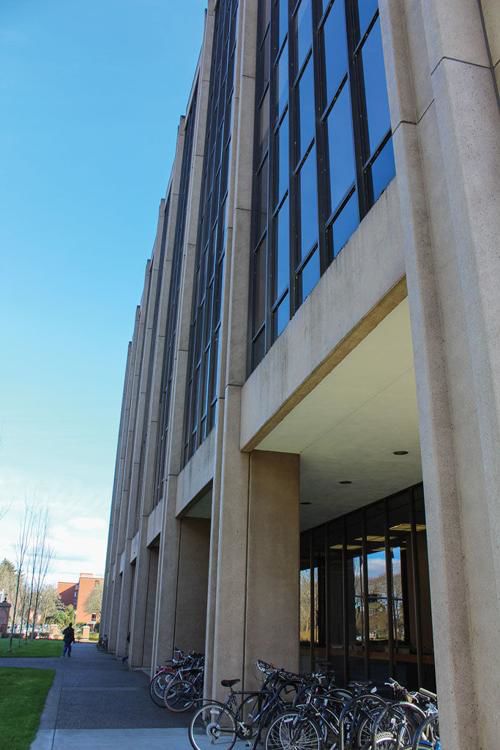OSU Board of Trustees to further discuss due diligence of 2019 presidential search
March 19, 2021
Discussions will be continuing concerning the Oregon State University’s Board of Trustees 2019 presidential search and appointment of F. King Alexander after the recent announcement of his probationary period.
In 2019, the OSU Board of Trustees began its search to fill the university president position after the retirement of Ed Ray. The board appointed the Presidential Search Committee to assist the board and conducted a national search. The committee included OSU trustees, faculty, students, administrators, staff, alumni and representatives from higher education and was chaired by OSU trustee Darry Callahan.
F. King Alexander, who has acted as president at three other universities, including Louisiana State University, was appointed on Dec. 19, 2019 and officially began his term on July 1, 2020.
In its announcement of the 2019 presidential search, the board stated, “The board will respect and protect candidate confidentiality to the fullest extent allowed by law, while making every effort to ensure the search process is transparent and as inclusive as possible.”
However, since information on Alexander’s conduct concerning sexual assault at LSU surfaced, questions and concerns about the board’s presidential hiring process have risen, specifically concerning transparency with the community and ways to avoid a similar situation moving forward.
Kathleen Stanley, president of United Academics of OSU, the faculty union, said in a board of trustees meeting held on March 17 that the hiring process of Alexander was “flawed.” Some public speakers at the meeting also called the process “too secretive.”
Debbie Colbert, the secretary of the board, said though the names of presidential candidates were confidential during the 2019 search process, the board’s selection criteria was created with input from the OSU community via a town hall meeting and an online survey.
“The presidential search and selection process was conducted over eight months and engaged two committees of students, faculty, staff and stakeholders that helped to interview and provide evaluation of semi-final and finalist candidates,” Colbert said.
Vice president of University Relations and Marketing Steve Clark struck a similar tone to Colbert regarding the transparency of the search.
“The search process was not secretive,” Clark said. “It was conducted confidentially to attract candidates for the position of OSU president who otherwise might not apply if their current college, university or employer would become aware that they were an applicant…The entire search process was described in a very open and transparent way.”
Questions about next steps for the board of trustees and OSU have come up as well, and the March 17 meeting was held by the board to discuss this with the public, as well as to review the LSU report with Alexander and broadcast his responses to questions from trustees.
The week of March 22, the board’s Executive and Audit Committee will be meeting “to discuss feedback and to also consider an external assessment of whether the due diligence conducted in the search was sufficient,” according to Colbert.
Clark said though the reports on LSU and Alexander’s conduct are “very serious and disturbing,” there are also examples of where the president did take action to address sexual violence and misconduct while at LSU; for example, in cases at “LSU fraternities and sororities, medical schools and inappropriate behavior elsewhere in the university.”
Clark explained that he cannot “forecast what the board of trustees may engage in,” but he has faith in the university’s next steps.
“I trust the board, the university and its leaders will continue to emphasize Oregon State University’s commitment and responsibility to preventing and responding to sexual violence and misconduct of any kind, support survivors with compassion, while trustees appropriately consider the LSU report and its findings and recommendations,” Clark said.




















































































![Newspaper clipping from February 25, 1970 in the Daily Barometer showing an article written by Bob Allen, past Barometer Editor. This article was written to spotlight both the student body’s lack of participation with student government at the time in conjunction with their class representatives response. [It’s important to note ASOSU was not structured identically to today’s standards, likely having a president on behalf of each class work together as one entity as opposed to one president representing all classes.]](https://dailybaro.orangemedianetwork.com/wp-content/uploads/2025/03/Screenshot-2025-03-12-1.00.42-PM-e1741811160853.png)
























